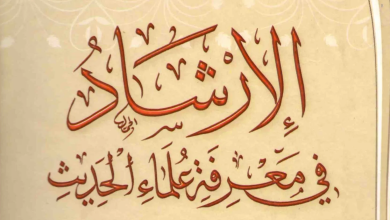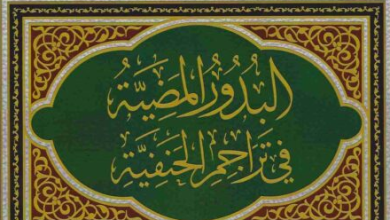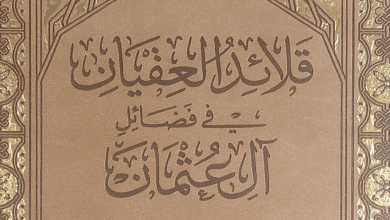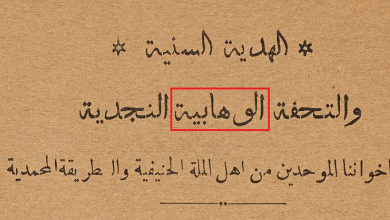Simple Words That Produced Great Men
Translator’s Preface
“Your handwriting resembles that of the hadith scholars,” said al-Birzālī. These words resonated well with Muhammad ibn Ahmad such that it instilled within him the desire to pursue the science of hadith. [1] He went on to author countless works, assume lofty academic positions, and was eventually regarded as a leading authority in the field of hadīth.[2] Muhammad ibn Ahmad was none other than the Damascene hadith master and expert historian better known as Shams al-Dīn al-Dhahabī (d. 748 AH). There are countless examples in the annals of Islāmic history of apparently trivial remarks that changed the lives of laymen, thus, making them the great luminaries whose biographies decorate the pages of our prestigious history.
The following is an excerpt from the inspiring book of Shaykh Muhammad ‘Awwamah entitled, ‘Ma‘ālim Irshādiyyah li Sanā’at Tālib al-‘Ilm (Instructive Signposts for Developing a Seeker of Knowledge)”[3] In this section, the author highlights the influence kind words can have on people. He cites three examples of great luminaries whose turning point in their lives were kind words uttered by those who themselves had not expected such remarkable results.
In order to make the article more reader friendly an idiomatic translation was adopted in many places. May Allāh reward our pious predecessors for the noble example they left for us, and grant us the ability to follow in their footsteps. Āmīn.
Muntasir Zaman
Simple Words that Produced Great Men
By Shaykh Muhammad ‘Awwāmah
Translated by Muntasir Zamān
The topic of himmah (having a lofty spirit) in the acquisition of knowledge is lengthy and cannot possibly be encompassed in one chapter of this book. However, it is adorned with narrations and anecdotes on himmah that produced the extraordinary and resulted in incidents which are closer to miracles than reality.
I would like to mention the incident of a great Shāfi‘ī scholar named Abū Bakr ‘Abd Allāh ibn Ahmad al-Marwazī al-Qaffāl al-Saghīr (d. 417). Yāqūt al-Hamawī writes:
From those who are attributed to Marw al-Shāhjahān is ‘Abd Allāh (not ‘Abd al-Rahmān) ibn Ahmad ibn ‘Abd Allāh Abū Bakr al-Qaffāl al-Marwazī, the unparalleled scholar of his era in understanding and knowledge. He travelled in the acquisition of knowledge, authored books, and his blessing became manifest. He is an authority in the Shāfi‘ī school of thought, under whose tutelage many people studied and whose knowledge spread throughout the lands. He began his study of jurisprudence during a late stage in life.
A jurist from Marw informed me that al-Qaffāl[4] al-Shāshī (a famous person in that town and not the scholar being discussed) designed a lock and key the weight of which was one dāniq (i.e. one sixth of a dirham). People were impressed with his achievement due to which he gained fame. The news reached Abū Bakr al-Qaffāl, so he prepared a lock and key the weight of which was one tassūj (i.e. one fourth of a dāniq!). After completing his work, he went out and showed the people his achievement. Although people were impressed by his feat, he did not gain prominence and fame as did the former.
One day he told his close companion, “You see, everything requires fortune; al-Shāshī prepared a lock weighing one dāniq which became the talk of the town, while on the other hand I prepared a lock one fourth of its weight yet no one even mentioned me!” His companion remarked, “Prominence is acquired through knowledge, not by making locks!” He was so moved by these words that he began his pursuit for knowledge and made it his occupation. At the time, he had reached forty years of age. He approached a Shaykh from Marw and explained to him his desire to learn. The Shaykh agreed to teach him. He began by dictating the opening words of al-Muzanī’s book: hādhā kitāb ikhtasartuhū (This is a book I abridged). After listening to this, he climbed on top of his roof and began repeating these three words. He continued all night until eventually his eyes closed and he fell asleep. When he woke up, he had forgotten whatever he learned. He was upset and proclaimed, “What will I tell the teacher?” As he left the house, a neighbor complained to him, “O Abū Bakr, you kept us awake all night by your statement: hādhā kitāb ikhtasartuhū (this is a book I abridged)!” He heard this and once again learnt the words he had forgotten. He returned to his teacher and related to him what had transpired. His teacher consoled him and said, “Let this not prevent you from your endeavor, because if you are persistent in memorization and acquisition, it will become a habit.”
Thus, he strove and continued in the pursuit of knowledge and reached the rank that he reached. He lived for eighty years: forty as an ignoramus and forty as a scholar.[5]
Thereafter, Yāqūt related from al-Sam’ānī that he lived for ninety years and passed away in the year 417 AH.
This incident displays the lofty spirit which a forty year old man possessed, who failed to distinguish between a second person pronoun (ikhitasarta/you abridged) from a first person pronoun (ikhtasartu/I abridged) due to his lack of proficiency in knowledge and Arabic,[6] for he became a prominent scholar by virtue of this lofty spirit. Moreover, this story portrays the noble character of his close companion and his teacher. By means of a kind word, which came from an optimistic and eager soul and not one that is pessimistic and obstructive, they removed his despondency and informed him of what would result in prominence and a good outcome by striving and pursuing knowledge. This produced a leader who is described as:
- A means of honor for Khurāsān
- Unparalleled in his era in understanding, memory, piety, and scrupulousness
- On whose hands a large group of scholars studied and became leaders in the lands
- No one possessed deeper insight than him nor will there be anyone equal to him. We would say, “He is an angel in the form of a human.”
This ‘kind word’ and the great outcome it produced reminds me of other kind words, which had a greater outcome.
Al-Muwaffaq relates that Imām Abū Hanīfah said:
One day I passed by al-Sha’bī while he was sitting. He called me and asked, “Whom do you frequent?” I said, “I frequent the marketplace” and I mentioned the name of my teacher. He said, “I was not referring to your frequenting the marketplace; I was asking about the scholars whom you frequent.” I told him, “I hardly go to them.” He said, “Do not be negligent. You must pursue knowledge and seek the companionship of scholars because I see within you diligence and competence.” I was so moved by his words that I stopped frequenting the marketplace and began my journey for knowledge. Thus, Allāh granted me benefit through the words of al-Sha’bī.
Al-Bayhaqī relates on the authority of al-Rabī’ ibn Sulaymān al-Murādī who heard al-Shāfi‘ī mention:
I left Makkah and accompanied the tribe of Hudhayl in the desert to learn their speech and adopt their dialect, as they were the most eloquent Arabs. I stayed among them for a duration of time, travelling where they travelled and lodging where they lodged. As I was returning to Makkah reciting poetry and mentioning the battles of the Arabs, a person from the al-Zuhriyyūn passed by and said, “O stranger, it will be difficult for us to witness such fluency and eloquence not being channeled in knowledge and jurisprudence.” I asked, “Does there remain anyone who is sought after?” He said, “Mālik ibn Anas, the leader of the Muslims.” I was so moved by his words that I borrowed a copy of al-Muwatta’ (of Imām Mālik ibn Anas) from a person in Makkah and memorized it…
Look at the politeness and character in their address and their manner of lifting himmah. Both Imām al-Sha’bī and the person from the al-Zuhriyyūn spoke words that do not exceed one sentence, yet they produced a leader for the Muslims, whose knowledge and understanding benefited the Muslims throughout the centuries and will continue to do so until the end of time.
These were apt words which fell upon lofty himmah. Further, they were words of truth and well-wishing, which emanated from a sincere heart, and therefore, it had such a remarkable outcome. May Allāh be pleased with Imām Abū Hanīfah, Imām al-Shāfi‘ī, and all the scholars of Islām. May Allāh reward Imām al-Sha’bī and the person from the al-Zuhriyyūn immensely for the words they spoke which resulted in such good.
This is a lesson which every Muslim should take heed of: speak with good words and that which will lift spirits, not that which be a means of hindrance and will destroy ambitions.
———————————————————–
[1] Ibn Hajar, al-Durar al-Kāminah, vol.3, p.238
[2] Ibid, vol.3, p.336
[3] ‘Awwāmah, Ma’ālim Irshādiyyah, pp.111-117
[4] [Al-Qaffāl means a locksmith.]
[5] Al-Hamawī, Mu’jam al-Buldān, vol.5, p.115
[6] As mentioned by Ibn al-Salāh in his book al-Tabaqāt, vol.1, p.498.






